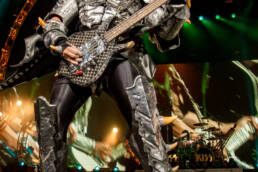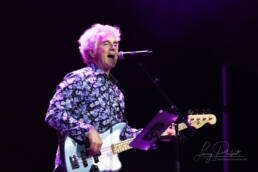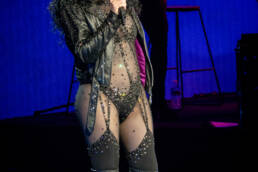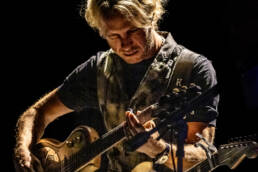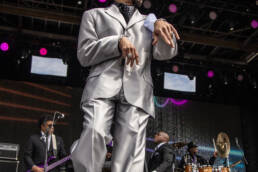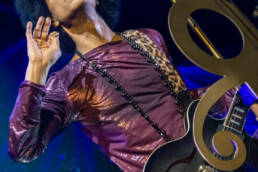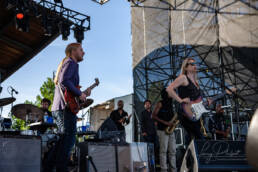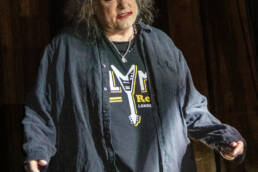Greg Allman: Midnight Rider Who Sang The Blues
The Spark That Lit the Fire
Picture a young Gregg Allman, a scruffy kid in Daytona Beach, Florida, in the late ‘50s, crouched over a beat-up radio, letting Muddy Waters’ growl seep into his bones. Born Gregory LeNoir Allman on December 8, 1947, in Nashville, he wasn’t chasing fame—he was running from pain. Orphaned at 2 when his dad, Willis, a soldier, was murdered, Gregg and brother Duane found solace in music. At 13, a pawn-shop guitar sparked it; by 16, he’d swapped it for a Hammond organ, mesmerized by Ray Charles’ soul. A 1965 gig with Duane—jamming ‘til dawn—lit the fuse. “I wanted to sing what hurt,” he’d say. That raw, restless need—to howl through the hurt—drove him to make music his salvation.

The Man Behind the Keys
Gregg’s story starts in tragedy—Willis shot by a hitchhiker, mom Geraldine raising two boys alone. Nashville to Florida, military school stints—he rebelled, long hair flying. By 20, he was a road rat, voice gravelly, eyes weary. The Allman Brothers Band made him a Southern rock god; solo stints deepened his tale. Married six times—Janice Blair, Cher (1975-1979), Julie Bindas, Danielle Galliano, Stacey Fountain, Shannon Williams—father to Devon, Elijah, Delilah, Michael, Layla, he battled demons ‘til liver cancer took him May 27, 2017, at 69 in Savannah, a lion laid to rest.
The Career That Forged a Genre
Gregg’s legacy is The Allman Brothers Band (ABB)—founded 1969 with Duane (guitar), Dickey Betts (guitar), Berry Oakley (bass), Butch Trucks (drums), Jai Johanny “Jaimoe” Johanson (drums). The Allman Brothers Band (1969), At Fillmore East (1971)—a live monster—birthed Southern rock. Early on, The Escorts, The Allman Joys, Hour Glass (with Duane) flailed; ABB soared—Eat a Peach (1972), Brothers and Sisters (1973). Solo, Laid Back (1973), I’m No Angel (1987) shone. Post-Duane (1971 crash), Oakley (1972 crash), ABB waned—‘80s splits, ‘90s reunions (Seven Turns, 1990). Gregg toured solo ‘til 2017; ABB’s last bow—October 28, 2014, Beacon Theatre.
Bandmates of ABB: Duane’s slide, Betts’ twang, Oakley’s pulse, Trucks’ thunder, Jaimoe’s jazz—Gregg’s bluesy wail and organ tied it. Relationships: Cher’s stormy marriage birthed “Two the Hard Way” (1977); Johnny Winter guested on Laid Back. TV/Film: Austin City Limits (1996), Crossroads (2007 with Eric Clapton), Rush (1991 cameo). Awards: ABB’s Grammy for “Jessica” (1996, Instrumental), Rock Hall (1995—Gregg, Duane, Betts, Oakley, Trucks, Jaimoe), 10 million albums sold. Big Songs: “Midnight Rider” (Allman/Robert Payne, 1970)—a lonesome cry; “Whipping Post” (Allman, 1969)—a 5-minute howl; “Melissa” (Allman/Steve Alaimo, 1972)—a tender ache; “I’m No Angel” (Tony Colton/Phil Palmer, 1987)—a solo strut.
The Shadows That Followed
Gregg’s road was a blues song of its own. Duane’s 1971 motorcycle crash—dead at 24—gutted him; Oakley’s a year later doubled the blow—Gregg drowned it in heroin, busted in ‘73 but dodged jail testifying against a dealer. His 1975 Cher fling—married nine days post-divorce—imploded; “She’s a gold-digger,” he snarled, Two the Hard Way flopped—divorce by ‘79. A 1986 coke arrest in Florida—caught with a gram—nabbed probation; “washed up” whispers stung. In 2011, a liver transplant (hepatitis C from needles) sparked “he’s done” buzz—he roared back with Low Country Blues. Post-2017, a 2020 estate fight—widow Shannon vs. kids—hit tabloids; settled quiet, but “greed” lingered. Through wrecks and ruin, his voice endured—a midnight rider ‘til the end.
